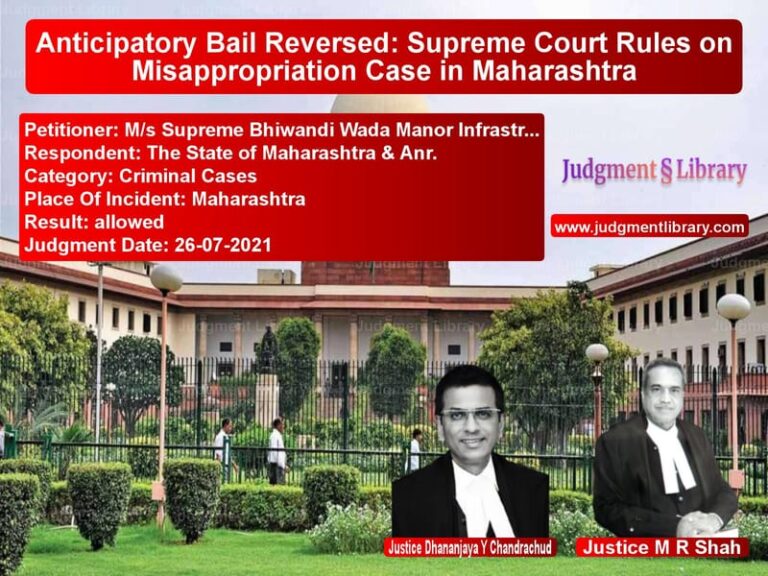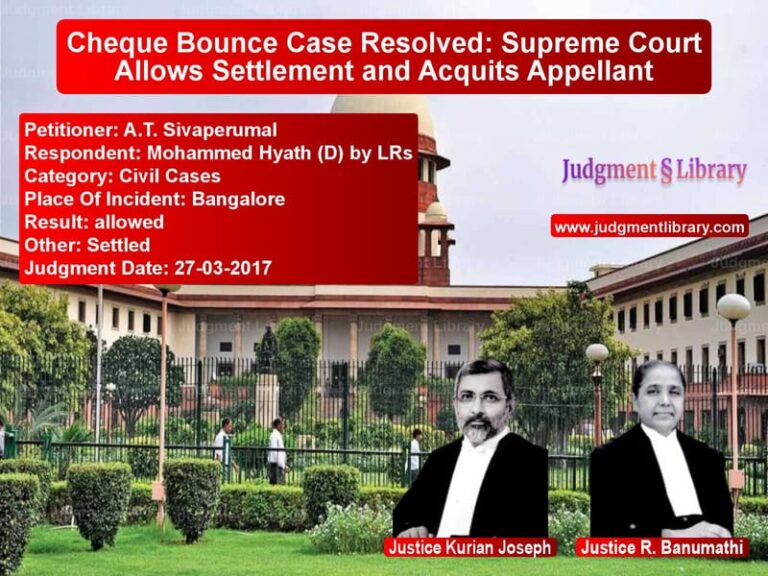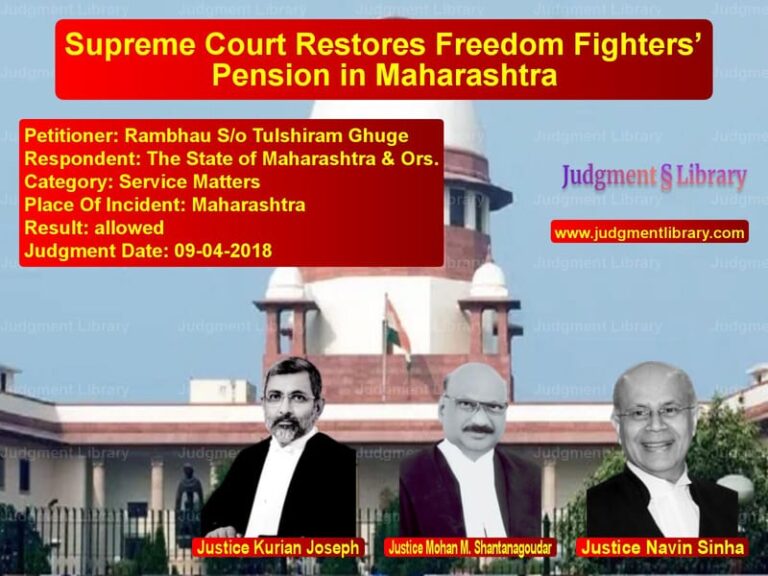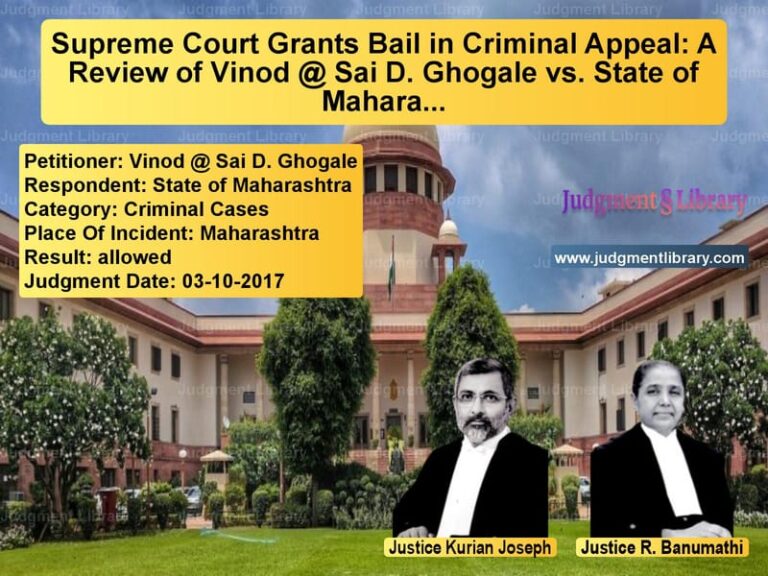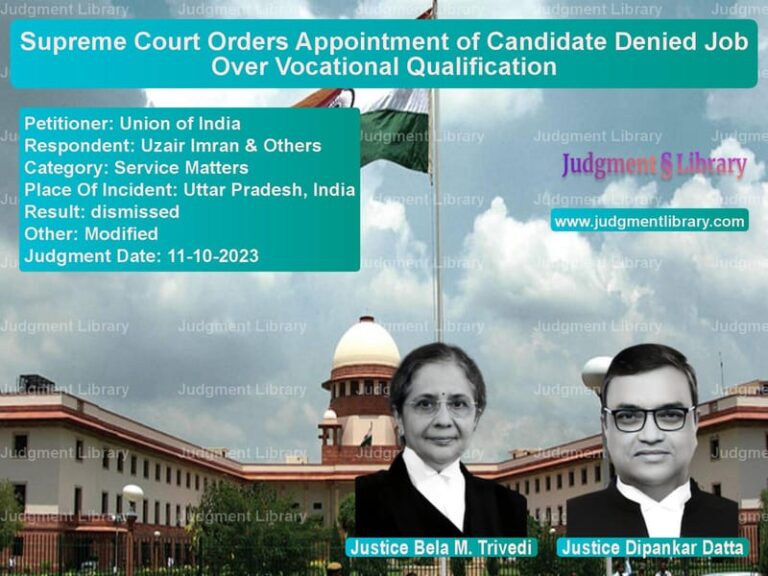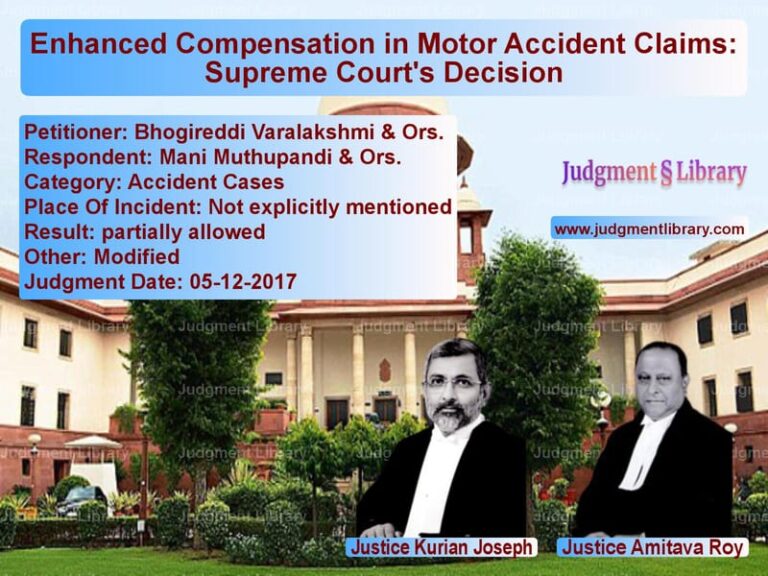Supreme Court Holds Police Officer and Magistrate in Contempt for Violating Anticipatory Bail Order
The Supreme Court of India, in a landmark judgment, found a police officer and a magistrate guilty of contempt for willfully disobeying its order granting anticipatory bail to the petitioner, Tusharbhai Rajnikantbhai Shah. The case highlights serious procedural lapses, including wrongful police remand, illegal detention, and custodial torture.
Background of the Case
The controversy arose from an FIR (No. 11210068230266) registered on July 21, 2023, at Vesu Police Station, Surat. The complainant, Abhishek Vinodkumar Goswami, alleged that Tusharbhai Shah had received Rs. 1.65 crores in cash towards the sale of 15 shops but had failed to transfer possession of the properties.
Fearing arrest, the petitioner initially sought anticipatory bail from the Sessions Court and later from the High Court, both of which were denied. He then approached the Supreme Court through Special Leave Petition (Crl.) No. 14489 of 2023.
On December 8, 2023, the Supreme Court granted interim anticipatory bail, directing that in the event of arrest, the petitioner be released on a personal bond of Rs. 25,000, with a condition to cooperate with the investigation. However, the order did not authorize the police to seek custody of the petitioner.
Violation of the Supreme Court’s Order
- Despite the Supreme Court’s order, the Investigating Officer, R.Y. Raval, arrested the petitioner on December 11, 2023, and released him on bail.
- The following day, the petitioner was served with a notice requiring him to appear before the Additional Chief Judicial Magistrate (ACJM) for police remand.
- On December 13, 2023, the 6th ACJM, Deepaben Sanjaykumar Thakar, disregarded the Supreme Court’s anticipatory bail order and granted three days of police custody, ignoring strong objections from the petitioner’s counsel.
- The petitioner was allegedly tortured in police custody and forced to apply for regular bail under Section 437 CrPC, despite already being protected under the Supreme Court’s anticipatory bail order.
- He was finally released on December 18, 2023, nearly 48 hours after the expiry of his police remand period.
Petitioner’s Arguments
- The petitioner’s counsel contended that the Supreme Court’s anticipatory bail order provided absolute protection, and police custody remand was unlawful.
- Instead of complying with the bail order, the police and the magistrate colluded to keep the petitioner in custody.
- During police remand, the petitioner was tortured and pressured to settle the dispute with the complainant.
- The petitioner alleged that the CCTV footage of the police station from December 13-16, 2023, was deleted to cover up custodial torture.
Respondents’ Defense
- The police and magistrate argued that they were following a long-standing practice in Gujarat where anticipatory bail orders often include a provision allowing police to seek remand.
- The police claimed that the petitioner was not cooperating with the investigation, justifying the need for custody.
- The magistrate stated that the Supreme Court’s order did not explicitly bar the police from seeking remand.
- All accused respondents, including the Commissioner of Police and the Deputy Commissioner, tendered an unconditional apology.
Supreme Court’s Observations
The Court strongly condemned the actions of the police and the magistrate:
- “There was neither bona fide nor genuine need for police custody of the petitioner.”
- “The police custody remand of the petitioner was sought in flagrant defiance and gross contempt of this Court’s order.”
- “The magistrate failed in her duty to protect the rights of the petitioner and acted as a mere rubber stamp for the police.”
- “The petitioner was detained illegally for nearly 48 hours after the expiry of police remand.”
- “The practice in Gujarat allowing police custody even after the grant of anticipatory bail runs contrary to the principles laid down in Sushila Aggarwal v. State (NCT of Delhi).”
Final Judgment
- The Supreme Court found R.Y. Raval (Investigating Officer) and Deepaben Sanjaykumar Thakar (6th ACJM) guilty of contempt of court.
- It discharged the contempt notices issued to the Commissioner of Police, Surat (Ajay Kumar Tomar), and Deputy Commissioner, Surat (Vijaysinh Gurjar), citing lack of direct involvement.
- The Court directed the Gujarat judiciary to abandon the illegal practice of allowing police remand after granting anticipatory bail.
- It ordered that the anticipatory bail granted to the petitioner be made absolute until the conclusion of the case.
Conclusion
The Supreme Court’s ruling reaffirms the principle that anticipatory bail provides absolute protection unless expressly modified. It also serves as a strong warning against misuse of police powers and judicial overreach.
The judgment is expected to bring systemic reforms in Gujarat’s criminal justice system, ensuring stricter adherence to Supreme Court rulings and preventing the illegal detention of individuals granted pre-arrest bail.
Petitioner Name: Tusharbhai Rajnikantbhai Shah.Respondent Name: Kamal Dayani & Ors..Judgment By: Justice B.R. Gavai, Justice Sandeep Mehta.Place Of Incident: Surat, Gujarat.Judgment Date: 07-08-2024.
Don’t miss out on the full details! Download the complete judgment in PDF format below and gain valuable insights instantly!
Download Judgment: tusharbhai-rajnikant-vs-kamal-dayani-&-ors.-supreme-court-of-india-judgment-dated-07-08-2024.pdf
Directly Download Judgment: Directly download this Judgment
See all petitions in Bail and Anticipatory Bail
See all petitions in Custodial Deaths and Police Misconduct
See all petitions in Contempt Of Court cases
See all petitions in Judgment by B R Gavai
See all petitions in Judgment by Sandeep Mehta
See all petitions in allowed
See all petitions in Quashed
See all petitions in supreme court of India judgments August 2024
See all petitions in 2024 judgments
See all posts in Criminal Cases Category
See all allowed petitions in Criminal Cases Category
See all Dismissed petitions in Criminal Cases Category
See all partially allowed petitions in Criminal Cases Category


